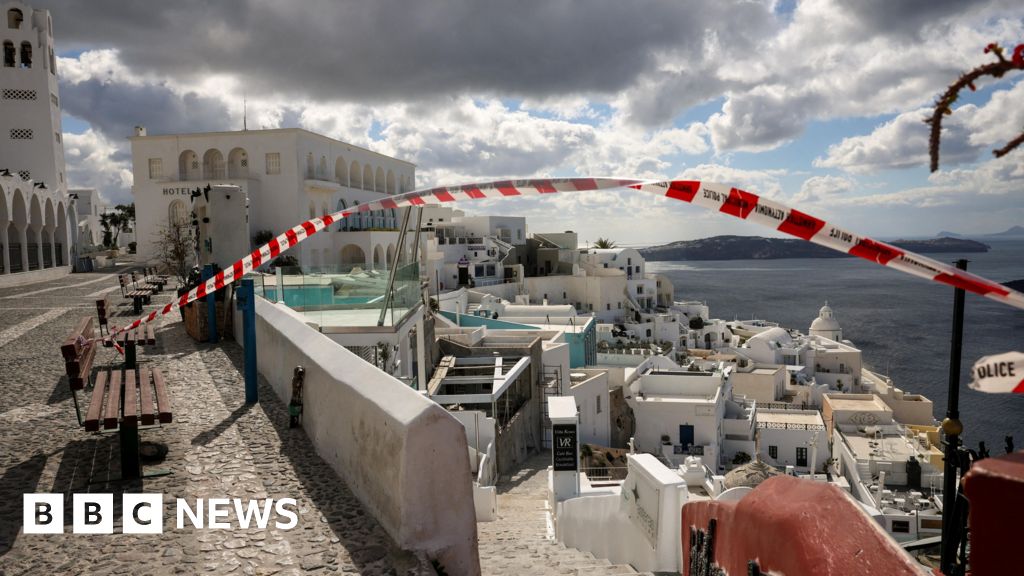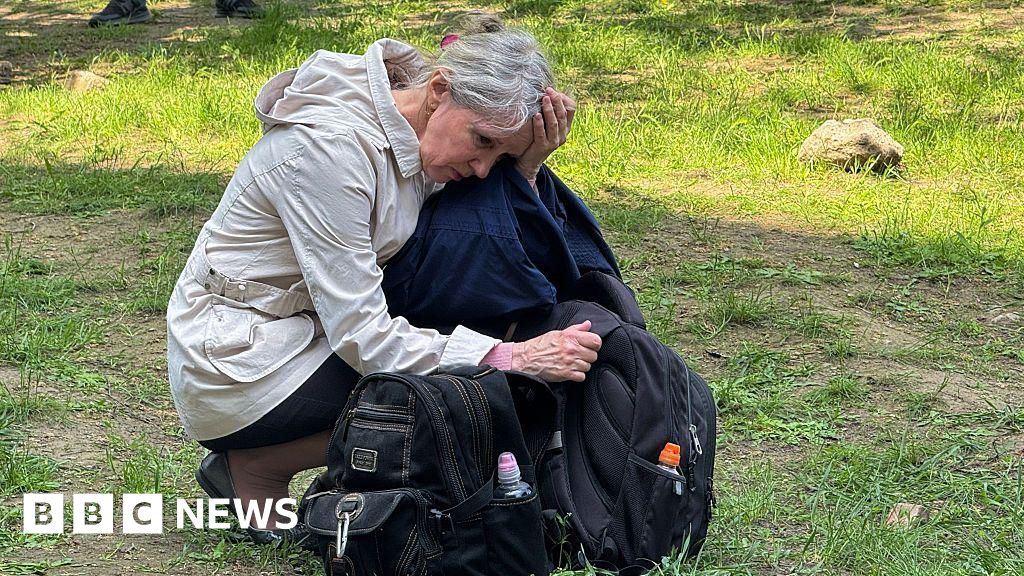Santorini has been hit by a powerful, shallow 5.3 magnitude earthquake, which is the strongest to strike the Greek island during recent seismic activity in the area.
The tremors were felt in Athens on Monday evening and measured a focal depth of 17km (10.6 miles).
Residents of the neighbouring island Amorgos remain on high alert after the latest tremor, which followed a moderate 5.0 magnitude earthquake between the islands on Sunday evening.
The tourist hotspot has been rocked by seismic activity since January and more than 12,800 quakes have been detected by the University of Athens’ Seismological Laboratory.
Some residents have been seen patrolling dangerous areas to deter tourists from taking photos on cliffs.
Landslides have occurred in many parts of Santorini due to the frequency and intensity of the tremors and experts have not ruled out a major earthquake.
Seismologists were optimistic about the intensity of the quakes starting to subside, but are now concerned they are worsening.
A state of emergency will remain in place on Santorini until at least 3 March.
Sunday’s quake was preceded by three smaller ones of more than 4.0 magnitude, while the three on Monday morning were also more than 4.0.
Inspections found no damage to buildings in Santorini or Amorgos.
No injuries have been reported as a result of the earthquakes, which have numbered in the thousands since 26 January, but more than 11,000 people have left the islands.
Schools will remain closed on Santorini, Amorgos and several other islands on Monday and Tuesday.
A team of the Special Disaster Response Unit has set off for Amorgos from Patras with a special earthquake rescue vehicle, and technical teams are expected to inspect the electricity network on the island.
Kostas Papazachos, a professor of seismology at the Aristotle University of Thessaloniki, told Greek broadcaster ERT that the authorities had to allow for the situation to continue for most or all of February.
“Let’s hope that we will slowly move towards a gradual de-escalation,” he said.
“We will have to be a little patient and see. Let’s hope that after a couple of weeks the phenomenon will start to subside.”
He said the possibility of a major earthquake had not been completely ruled out.
Meanwhile the cruise ship Viking Star, with 893 passengers and 470 crew, docked at the port of Souda in Crete early on Monday morning.
It was due to be the first cruise ship of the season in Santorini. The ship changed its route mainly to avoid cable car overcrowding in Santorini during the seismic activity.
The strongest quake so far was a 5.2 magnitude on Thursday. Six and above is considered severe.
Greece is one of Europe’s most earthquake-prone countries, but scientists are puzzled by the current “clusters” of quakes which have not been linked to a major shock.
Santorini is on what is known as the Hellenic Volcanic Arc, which is a chain of islands created by volcanoes, but the last major eruption was in the 1950s.
Greek authorities have said the recent tremors were related to tectonic plate movements, not volcanic activity.
Scientists cannot predict the exact timing, size or location of earthquakes.
From 26 January to 8 February 2025, the Seismology Laboratory (SL) of the University of Athens registered more than 12,800 earthquakes in the Santorini-Amorgos zone.
Additional reporting by Ruth Comerford.
















Leave a Reply